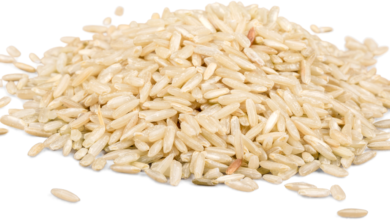Prune: A natural laxative that can help relieve constipation, which can worsen period pain.
Prunes: Nature's Sweet Remedy for Digestive Health

How it is useful in menstruation cycle or period pain?
Prunes are a fruit that can be helpful during your menstrual cycle due to their laxative properties. They can help relieve constipation, which can worsen period pain. Prunes are also a good source of fiber, which can help regulate digestion and reduce bloating. Additionally, they contain potassium, which can help regulate fluid balance and reduce cramps.
Important nutrients of this useful in menstruation cycle or period pain?
· Fiber: Regulates digestion and reduces bloating.
· Potassium: Regulates fluid balance and reduces cramps.
how much to take in menstruation cycle or period pain
It is recommended to eat 5-6 prunes per day during menstruation.
How to take in menstruation cycle or period pain?
You can eat prunes on their own or add them to cereal, yogurt, or smoothies.
Side effects of taking too much in menstruation cycle or period pain?
Eating too many prunes can cause diarrhea and other digestive issues.





